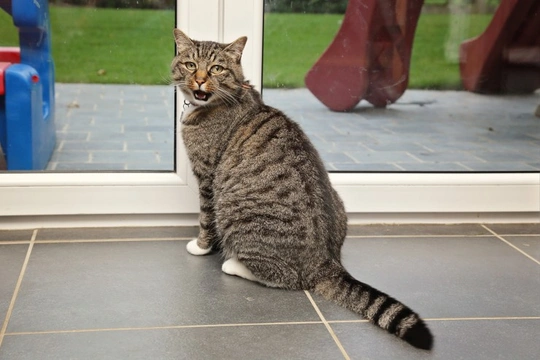Pets
Pets for studWanted petsBreedersAccessories & services
Knowledge hub
Support
Support & safety portal
Comparing indoor and outdoor life for cats objectively
While here in the UK most cats are allowed at least some unsupervised access to the outside world, in many other countries, indoor-only life for our feline friends is the norm and of course, a number of cat owners in the UK decide to keep their cats indoors only too, either out of necessity or personal preference.
One thing that both indoor and outdoor cat owners have in common is of course their desire to do what is best for their cats, taking into account all of the various different factors involved in this-but on the other hand, both types of owners will generally be very sure that their way is best, at least for their own cats, and it can be difficult to get objective, impartial information on the bigger picture!
In this article, we will compare an indoor life for cats to an indoor life impartially and objectively, looking at the various elements that factor into the decision and their pros and cons. Read on to learn more.
Safety
One of the most common reasons for cats to be kept indoors only is due to safety-either because the area in which the cat lives is unsafe for them to go out into due to the presence of busy roads, dogs or other things, or because of the owner’s perception of risk outside.
It is certainly true that a cat kept indoors only will be exponentially less likely to be exposed to certain risks and hazards, but this should be weighed up in terms of the reality of the risk versus the loss of other things that come with living indoors, and balanced in total taking into account the cat’s overall quality of life.
Fitness
Cats that go outside tend to cover quite a lot of ground while they are outdoors, and so, are more likely to be able to keep themselves fit without the need for much input from their owners. Providing entertainment and fitness opportunities for indoor cats can be more challenging, and requires more input and interaction with their owners in order to keep them moving and maintaining a healthy weight!
Fulfilment
Again, being able to go outside takes care of the vast majority of a cat’s natural needs for entertainment, fulfilment and the ability to exhibit natural behaviours-such as hunting or play-hunting, eating grass, establishing a territory, and leading as near to a natural life as possible.
For indoor cats, once again their owners will need to spend more time and effort recreating scenarios and diversions that will help to keep the cat happy, occupied and fulfilled, and able to take part in natural activities like other cats.
Health
Health problems and chronic conditions are common reasons for deciding to keep a cat indoors-for instance, if they are physically restricted or disabled, or carrying an immune-suppressant health condition.
Staying indoors means that the cat will be much less likely to come into other cats and so, catch illnesses or become injured in scraps-but on the other hand, they will not be able to build up their immune systems by systematic, low-level exposure to natural conditions, and so, will be more vulnerable if they do then go outside, albeit vaccinations can help with this, and even indoor cats should be vaccinated too.
Additionally, fitness and maintaining a healthy weight are important elements of health for all animals, including cats, and so this aspect of indoor-only life should also be taken into account.
Stress
Cats are fairly sensitive animals that are quite prone to feeling the effects of stress, but what leads to stress in one cat might be totally fine for another! Some cats may become stressed and feel restricted by being kept indoors, particularly if they are very lively and active and/or can see other cats through the window. But on the other hand, some cats may find going outside stressful because of the presence of other cats or dogs, problems establishing a territory, or feeling insecure in their place in the local area.
Natural behaviours
It is a fundamental right for all animals to be able to exhibit natural behaviours, and to lead a life that enables them to do this and gain fulfilment from it. For cats, natural behaviours come in many shapes and forms, and encompass a range of things such as hunting behaviour, burying their waste, eating grass, establishing a territory, and being active during the dawn and the dusk rather than just during the day.
Allowing an indoor-only cat to find an outlet for these natural behaviours can be challenging, and requires more input and thought from the cat owner-such as being able to provide a fulfilling, natural environment and being able to play-hunt. Some of these things will require certain aspects of the home to the altered to account for them and others mean a little time and attention every day on the part of the owner-but it is not impossible, albeit possibly more challenging.
In conclusion, the decision on whether or not to keep a cat indoors only should be made on a case by case basis, weighing up all of the various elements above-but knowing what to consider can help you to make an informed decision on what is best for your own cat.



